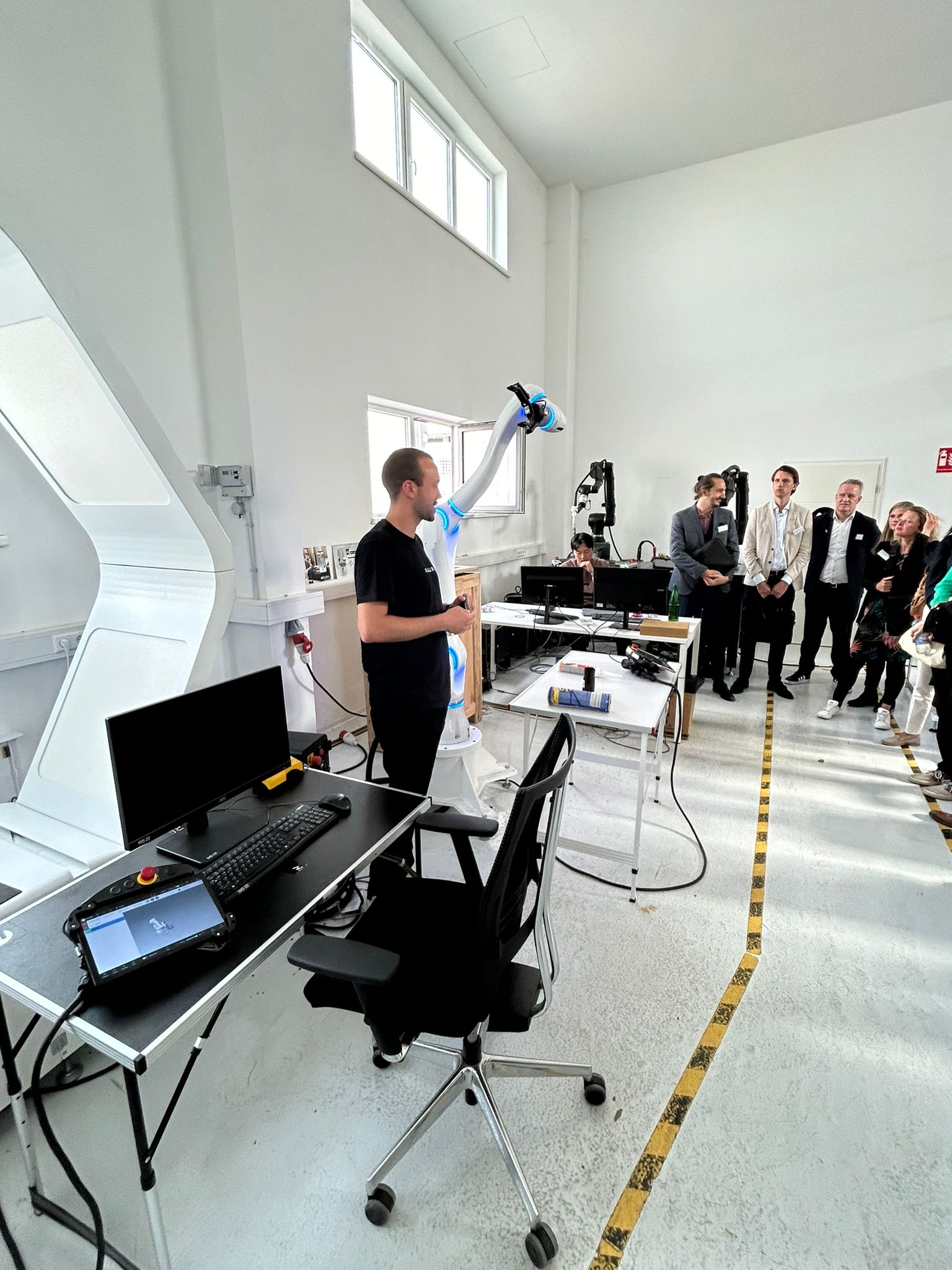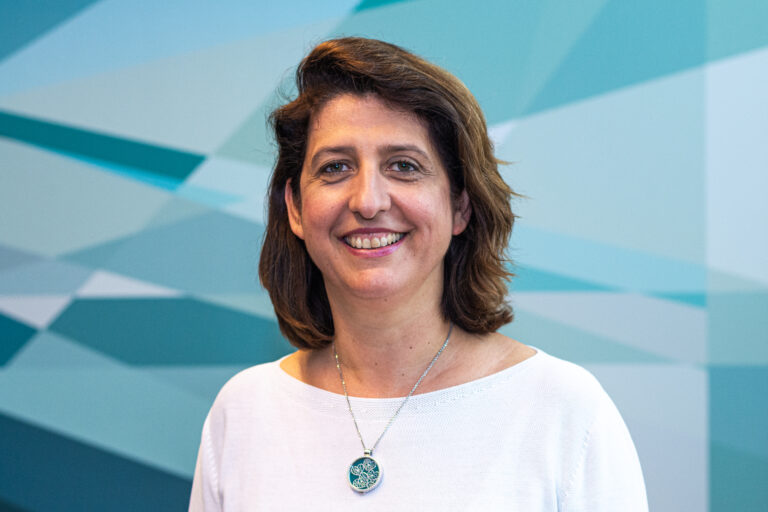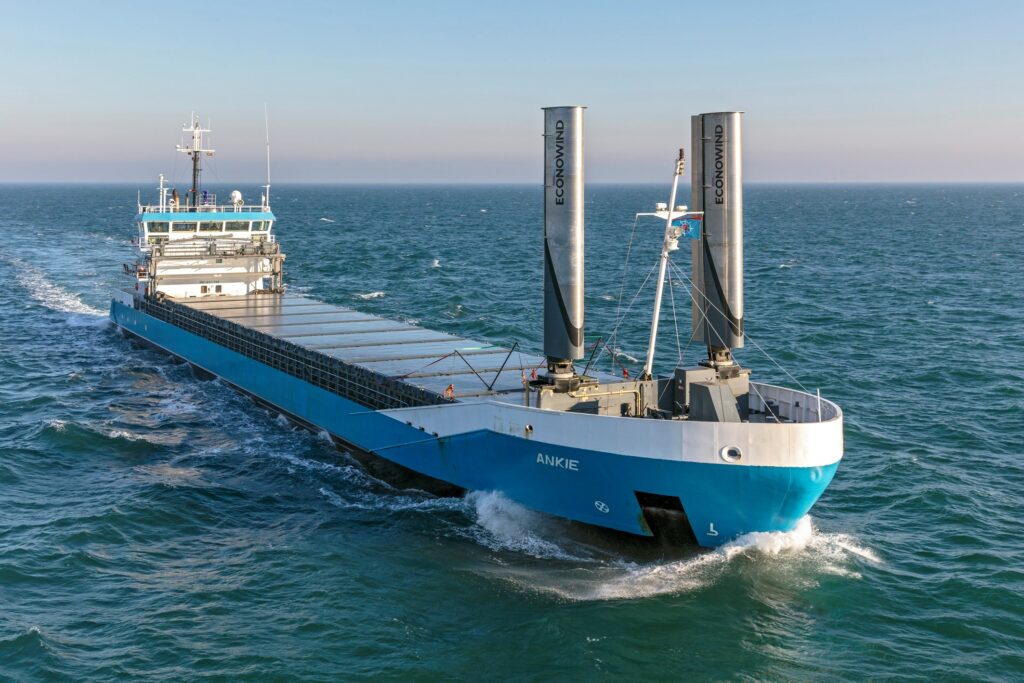Demand for AI skills is growing so quickly that the outflow from the regular education sector cannot keep up. Even for professionals who are already in work, the impact of AI means they need to undergo substantial and regular training and increase their productivity at work by learning to use and work with AI.
To exploit the potential of AI fully, it is very important that we also pay close attention to the people who are going to use it. Training for students and employees will have a crucial role if good and reliable AI solutions are to be achieved.
What is a learning community?
The AI-centred learning communities are focused on optimum integration of the labour market, research and education. Researching, working on and learning together about use cases from innovative SME companies is key – an approach in which education, applied and practical research go hand in hand. This is helping employees from innovative SME companies and institutions to use AI. They are also working on practically oriented innovation and training, and on converting new knowledge into education and training modules. Learning communities are achieving a quantum leap in scale in education by allowing learning, innovation and work to take place together cohesively.
That is why the Netherlands AI Coalition and AiNed have taken the initiative by setting up nationwide learning communities to start working together to recruit enough people at all levels with AI expertise and affinity with AI. Only then can we keep making the most of the social and economic opportunities for the Netherlands.
Pilot with six universities of applied sciences
The six universities of applied sciences (Avans, Fontys, Hogeschool Rotterdam, Hogeschool Utrecht, Hogeschool van Amsterdam and Saxion) are all participating in the Applied AI Learning Communities Pilot Programme. In these learning communities, researchers work closely with professionals, teachers and students to educate students and employees by making new AI applications usable in practice.
Learning based on practical cases
“When the pilot with learning communities started last year in June, a network of regional AI hubs of the Netherlands AI Coalition already existed in the Netherlands,” says Floor Michels-Swinkels, who works at the Brainport AI Hub and is the driving force for this subject. “Each regional AI hub focuses on application areas that fit in with the developments in the region in question. The pilot with learning communities offers the opportunity to use practical experience to learn a lot about how learning communities work, and the importance of them having a regional presence. That’s valuable knowledge for the development of AiNed Learning Communities.”
Learning, working and innovating
“In the six learning communities from the pilot, we’re constantly looking for ways to bring learning, working and innovating as close together as possible,” states Myrna van der Water, a key trailblazer of the Learning Communities pilot programme at the six universities of applied sciences. The universities of applied sciences participating in this pilot are tapping into the themes that play in their region, where they have also quickly chosen to join the AI hubs that already exist. The fact that there’s already a regionally organised AI ecosystem helps a lot. The parties involved start by jointly determining a good roadmap and then a suitable approach for carrying out practical research that fits with the challenges that businesses and social organisations in a certain region are facing.”
Working on mutual trust
“Setting up a suitable learning and working environment helps participants get to know each other and thus experience the space to learn and innovate,” says Myrna van de Water. “And that’s essential in learning communities, as it’s important to be aware of each other’s goals and expectations so that mutual trust can be achieved naturally. If the parties involved are on the same wavelength, they can really accelerate.”
Part of the AiNed programme approach
The pilot programme started on 1 July 2022 and will run for a year. Developing learning communities is also part of the People and Skills subprogramme of the National Growth Fund’s AiNed Programme. This will be followed up by AiNed in the autumn, using the knowledge and experience gained in the pilot.
Want to know more?
During the NL AI congress on 12 April, the subject of ‘Learning Communities for AI’ is on the programme. The chair, Katja van Kranenburg of the Human Capital working group, will join Floor Michels-Swinkels and Myrna van de Water in a discussion where they will give explanations and where Geert-Jan Peters and Bart Beima will share best practices with the audience. Inald Lagendijk from the AiNed board will also be present to explain the approach and goals from the AiNed perspective. You can still register for the NL AI congress and for this session. Take a look here for more information about the programme and how you can register.






